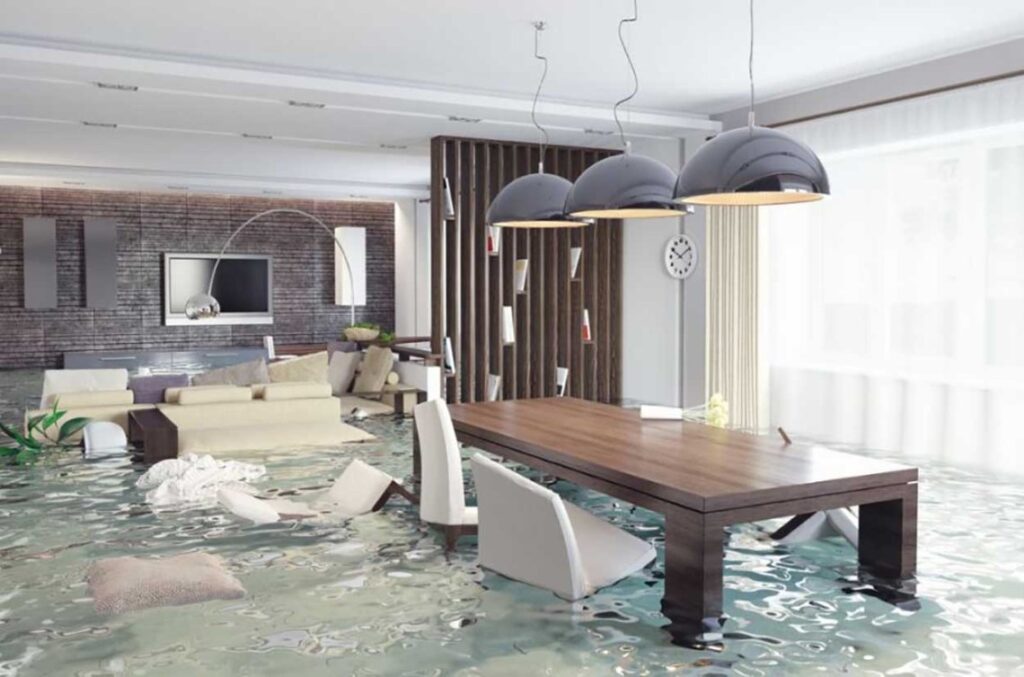By Alex Zhvanetskiy, Vice President of Samsonshield Inc.
So you have bought the tickets, have the sun tan lotion, packed the bags, put the pets up with relatives, stopped the newspaper, got vacation health insurance coverage and now you are heading to a sunny destination for a well-deserved vacation. You have everything covered and you’re ready to have a good time right? Great! The stark and unfortunate reality is that countless true-life horror stories continue to emerge for homeowners. Vacationers are getting calls from property managers and even neighbours advising of serious issues while they are away and when they call insurers, they find that their policy has been voided. Another unfortunate trend is turning heads in lawyer, property management and insurance firms is that owners are getting calls from tenants who are reporting problems after returning from extended absences. More often than not, owners are shocked to find that tenants have not had anyone check in on the home during their extended absences.
Not commonly known is a clause in most condominium insurance policies that stipulates that during extended absences where your home will be vacant, residents must have someone check in on the property to make sure the property is okay.
This clause is in almost all policies, yet generally it remains unknown.
Each policy is different with respect to how often suite checks must occur and who can be designated as a competent person to conduct such visits.
Insurance expert, Basel Kaskas of The Paisley-Manor Insurance Group, a company that specializes in insuring condominiums, states that this is an area where insurance policies have unique stipulations based on the type of loss that occurs and the type of property that is insured. He advises for example that,
“Water damage is one the biggest exposures to loss in scenarios where a residence is left unoccupied for extended times. The insurer will likely refuse to pay if the home owner does not take the proper precautions in accordance with their insurance policy.”
Water damage caused by faulty appliance piping and hoses, incorrect installation of washing / dishwasher machines, poor contracting and illegal renovations are just some of the causes of major water leaks. In many cases, water can negatively impact multiple units underneath the source of the water. Thousands of dollars in water damage can occur in each affected condominium unit.
Mr. Kaskas further describes that,
“Many policies include a clause that states if a residence is unoccupied for a period of time with no one checking in on the home, the policy may automatically lapse in coverage. This is why home owners should contact their insurance provider prior to travel to see if such absences are covered under their policy and what to do to make sure they are covered while they are away.”
One of the country’s foremost experts in condominium law, Mr Gerald Miller was canvassed about this issue. Mr. Miller is the managing partner of Gardiner, Miller, Arnold LLP, which is one of the largest condominium law firms in Ontario. His firm deals with these issues far too often.
“Condominium insurance is very complex. Each condominium corporation has its own insurance, each unit owner should have an owner’s policy and each owner who rents out their unit should also insist that their tenant has a tenant’s policy.
If a loss occurs, all that matters is that there is insurance coverage. We have found that the biggest losses come from water damage due to washing machine and dishwasher hose failure.It is important for everyone to know what an owner’s insurance policy says about closing that door to your condominium and heading to Florida for the winter or an extended vacation.
A typical Condominium Owner’s policy provides as follows:
‘Loss or Damage Not Insured
We do not insure loss or damage …. occurring after your unit has, to your knowledge, been vacant, for more than 30 consecutive days.’
Therefore, it is critical for every owner of a condominium unit to review their policy to determine the time frame their property can be vacant before their insurance policy excludes coverage. If your vacation plans exceed the time frame in your policy, you should contact your insurance company to determine what steps you can take to avoid exclusion or if you can purchase additional coverage. It could be as simple as having a friend, family member or a service provider monitor your unit.”
So How Much Insurance Is Enough?
Insurance for condominiums in Ontario is multi-layered:
- The condominium building itself is insured for:
- The building and grounds;
- Common areas and amenities; and
- Standard Unit (Or the original state that the developer provided to the original owner).
- The property owner gets their own insurance for their unit, locker, parking space and for something called, Betterments and Improvements; and
- Tenants also get their own insurance.
The best way to ensure that you have enough insurance and the right insurance is to work with a qualified insurance broker or provider.
Tenanted Properties
The first step in preventing unnecessary problems with tenants starts before the tenant even takes possession of your condominium.
Here are some ideas that may assist:
- Do proper checks on potential tenants:
- Letter of employment
- Credit Bureau worthiness
- Call references
- Photo identification
- Have a proper lease that forms the basis for the tenancy including clauses:
- Ensuring the tenant maintains insurance and provides proof (even on term renewals)
- Instructing tenants that during extended absences to have the property checked
- Ensuring renovations cannot be made without permission
- That regular mechanical inspections will occur
Action Plan
These problems are almost always preventable. It is important that property owners understand their risk and have a plan in place to mitigate that risk.
Some service providers provide Extended Absence Checks that can assist in mitigating this risk. It consists of the following:
- Engaging with property management to commence the process
- Determining the frequency of the in suite checks pursuant to insurance policy requirements
- Suite entry notices will be left inside your unit to prove access reason, dates and times
- Real time documenting and benchmarking of suite entries to property owners and property management through routine reporting practices
- Real time notifications of any and all issues
- Immediate mitigation of serious or emergency issues (e.g. water leaks)
This type of plan will alleviate any concerns for residents during extended absences. It also provides expert analysis of issues that may negatively affect your property. Should it become necessary to demonstrate proof to an insurer that competent persons completed checks, contemporaneous reports can be retrieved and provided for this purpose.

This type of plan also provides an extra layer of protection for condominium corporations because a pinhole leak in a water line today can lead to a major floor very quickly. Such early intervention prevents damage to other units that are major headaches for property managers.
Securing your biggest asset against such a devastating blow to your financial health is not as hard as you may think.
